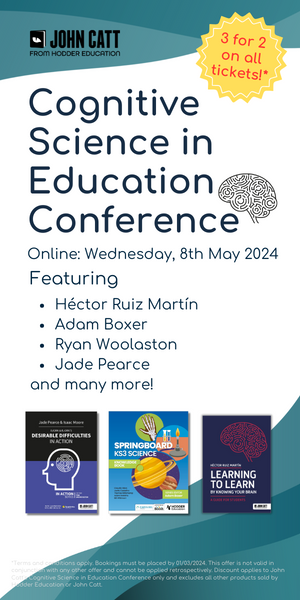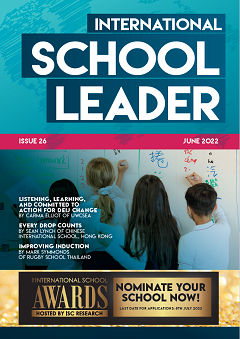By Simon Probert
The changing international school sector
In my 15 years working in the international schools sector, the ways in which we interact with local values alongside models of global citizenship have become an area in which I have become increasingly interested. The sector has grown exponentially in recent years, with Asia now being the centre of gravity for the international education sector and the majority of students in international schools in Asia being from local families. As the sector has evolved from primarily teaching the children of globally mobile expats, to a demographic increasingly made up of local students, there is a mandate upon us as school leaders to consider ways in which the values and curricula of our schools should evolve to meet the changing needs of our students.
Organic school change
In the words of Jane Jacobs in her magnum opus The Death and Life of American Cities, ‘Cities can provide something for everybody only because, and only when, they are created for everybody’. The same must be the case for our schools. As in the case of cities, they should grow organically to represent and fulfil the needs of the communities they serve. As the demographic of our schools has shifted so should our values and frames of reference. More broadly, an emphasis on interculturality must underpin the work we do as school leaders in line with Paolo Freire’s stress on a critical pedagogy, with an onus on ‘unity, compassion, organization, cultural synthesis’ and the use of dialogue to overcome injustice and promote equity in our communities and beyond. The original mission of international education to promote peace and sustainability remains one which must be central to everything we do.
“It is in the in-between spaces that creativity and innovation flourish.”
Rethinking global citizenship – Asia as a point of reference
In this sense, the literature around post-colonialism provides a lens for reflecting on how we can ensure we can be inclusive of the values of our changing communities as international educators. As Danau Tanu has argued in her book Growing up in Transit, ‘becoming ‘international’ is not a straightforward, neutral process. Being ‘international’ is a complex endeavour that is embedded within national and transnational hierarchies. Shifts in how we consider global citizenship are seen in the recent change in the model of the Council of International Schools to include Intercultural Learning and I-DEA in their model of global citizenship. Indeed, models of global citizenship need to be more than an emphasis on spreading Westernised values. There needs to be an explicit emphasis on incorporating and being inclusive of the values of the communities in which our schools are based.
Further to this, the notion of decolonising the curriculum has value. The concept of decolonisation emphasises the need to understand a diversity of narratives and voices, questioning what constitutes authoritative knowledge, as seen in Kuan-Hsing Chen’s arguments for the importance of using ‘Asia as a point of reference’ when being based in the region. Similarly, Vanessa de Oliveira Andreotti has discussed the notion of the need for a ‘decolonised global citizenship’, which is reflective of an ongoing critical engagement with local values, recognising we should be growing and developing in harmony with those values, rather than merely bringing values from other contexts.
International schools as the third space
International schools are complex cultural melting pots, one of the few certainties being that whatever the future brings for the sector, it is bound to be different to that which has come before. The sector as it currently stands is significantly different to how the first international schools emerged either to serve the needs of expats or in synergy with global organisations such as the League of Nations or indeed earlier English-medium schools in Asia for local students which evolved in the late nineteenth century as colonialism forged global links.
In terms of how the culture of our schools grows and evolves to meet the complex needs of our communities, we work in unique, dynamic spaces which represent a coming together of different peoples and cultures. The postcolonialist theorist Homi Bhabha writes of the Third Space as “a liminal space which gives rise to something different, something new and unrecognizable, a new area of negotiation of meaning and representation”. I view this as a compelling statement of the potential of our school communities to create meaningful change for the future world. It is in the in-between spaces that creativity and innovation flourish.
Building connections locally
Here in Shanghai, where we are working with predominantly local students (albeit with foreign passports), we are placing an explicit emphasis on bilingualism and biculturalism. This is seen in the work we are doing in school around growing the presence of Mandarin in the curriculum, as well as in school more broadly, for example through considering how we can use comparative approaches in the humanities to study local as well as global contexts, or through the choice of literary texts we use with our students. We are also building up our links to the community and the city in which we are based. All our students are taking part in a programme of trips and exchanges to local sites this year, alongside our attempts to build links to our local context, for example by hosting athletic events in the community spaces around the school.
A focus on identity
Identity was also the theme of our inaugural collapsed curriculum Free-Thinking Week last summer which focused on reflecting on identity, under the tagline, ‘You don’t know where you are going if you don’t understand where you have come from’. During this week we used inquiry-based pedagogy to promote student self-inquiry, as well as reflecting more generally on our values as a school. We have also been engaging with student voice as part of this in an attempt to understand student perspectives on their own identity, and what we are doing as a school to foster our students’ sense of local, and global, connection.
Final thoughts
In his collection Imaginary Homelands, Salman Rushdie writes, ‘‘What are the consequences of refusing to make any concessions to Western ideas and practices? What are the consequences of embracing those ideas and practices?”. Flipping this statement on its head, I would ask what the consequences are for us as international educators of not finding roots in our own localised contexts, and of merely importing our values and curricula from abroad. By embracing the diverse range of contexts, communities and cultures in which we find ourselves, we have the opportunity to foster bridges between nations as we work with the young people who will be the ambassadors of the future world.

Simon Probert is the Deputy Head at Harrow Shanghai. You can connect with Simon on LinkedIn.




